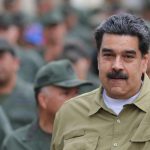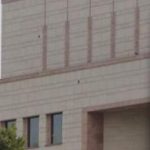By Kyle Orton
U.S. President Donald Trump’s surprise announcement that U.S. troops would be withdrawn from Syria came with many visible costs . The benefits the anti-Islamic State (ISIS) campaign has delivered to Syrian President Bashar Assad, Iran, and Russia were made permanent. There is also more space for ISIS and greater instability in northeast Syria as Turkey confronts Syrian Kurdish forces. And there is the political cost to the United States of leaving its Kurdish anti-ISIS partner to face Turkey and the pro-Assad coalition alone.
The one notable opportunity of Trump’s policy – a chance to heal the rift between the United States and Turkey – now seems to be slipping away, allowing Russia to continue exploiting the fissures within NATO to secure Assad’s and Iran’s victory in Syria.
Immediately before Trump’s announcement, Turkish President Recep Tayyip Erdoğan was threatening another Syrian incursion, this time east of the River Euphrates where U.S. troops are training the Syrian Democratic Forces (SDF), made up mainly of Syrian Kurdish fighters that Turkey says are affiliated to the Kurdistan Workers’ Party (PKK). Turkey, the United States and the European Union all list the PKK as a terrorist organisation
There was doubt that Erdoğan would risk a clash with U.S. troops, and over Turkey’s ability to carry out such a large operation. Ankara has been reluctant to commit sizeable troop numbers inside Syria, making disciplining its proxies difficult. Turkey has struggled in Idlibwith the al Qaeda derivative Hay’at Tahrir al-Sham (HTS), despite rebel allies that know the terrain intimately. In the east, Ankara would be reliant on Syrian Arab forces unfamiliar with the terrain in numbers insufficient to occupy the proposed 150 miles of border at a depth of 20 miles.
These limitations were not fatal since Turkey had, and has, narrow aims: to break up the PKK’s contiguous control of the border, and to allow some of the four million refugees in Turkey to return to Syria, alleviating domestic political pressure. It did mean governance in the aftermath would probably be weak and predatory like Afrin
Then the whole picture was changed by Trump’s Dec. 19 tweet.
It has been known for some time U.S. policies are being hastily arranged to retrospectively align with Trump’s tweets. Such was the case with Pakistan a year ago, and the White House staff are only picking up where The Apprentice producers left off in trying to make Trump seem coherent. Alas, politics is not yet entirely a reality television show, so no single narrative, even a false one, has been imposed on Trump’s command to get the troops out of Syria.
Instead, chaos took over. Competing factions within the administration agreed only that the withdrawal should be slowed down, and then fell into fighting one-another to interpret the drawdown in a way that meets the policy preferences they had already.
In this situation, no matter how earnestly administration officials convey their interpretation of the order, and no matter how much buy-in they think they have from the president, they know, as do foreign interlocutors, that this could be overturned by another tweet at any moment and that Trump’s main goal is to withdraw. That signal matters above all else for future planning.
Trump announced the withdrawal after a call with Erdoğan and appeared to be reconciling with Turkey. Turkey’s worries about a PKK base on its border were assuaged, eliminating Ankara’s incentive to align with the pro-Assad coalition in wanting the United States out of Syria. Ankara, in turn, offered to take over finishing off ISIS in eastern Syria. Trump accepted , though the Pentagon doubted this was possible .

Things have soured since. The United States switched to staying in Syria until Turkey agreed not to attack Syrian Kurdish forces. Whether the United States is in position to enforce this or not, it led to a diplomatic fiasco in Ankara. Then new disagreements emerged over Venezuela
Into this disorder stepped Russian President Vladimir Putin, meeting Erdoğan on Jan. 23. Moscow remains focused on HTS-dominated, nominally Turkish-protected Idlib. But the Russians now see an indirect approach: if Turkey has an eastern buffer zone, which reins in the Syrian Kurds and allows the return of the refugees, Idlib becomes less crucial. A deal linking Assad’s takeover of Idlib with Turkey carving out an eastern “safe zone” (with the rest of the SDF areas reverting to the Syrian government) was likely on Putin’s mind when he raised the Adana Agreement as a basis for solution
When the Adana Agreement was signed in 1998, it averted Turkish military action against Syria in exchange for the Syrian government expelling the PKK leader and cracking down on the PKK presence in Syria. Under Adana’s auspices, until it was abrogated by the 2011 Syrian revolution, Syrian-Turkish relations improved dramatically , the situation the Russians want to restore.
For Turkey, this is superficially attractive, avoiding both a costly collision with the U.S.-empowered Syrian Kurds and a Syrian government offensive in Idlib with the accompanying cataclysmic flood of refugees .
The advantages to Russia of this settlement are considerably greater, however. Firstly, rather than destroying Syrian Kurdish forces, the ongoing talks to bring them back to Assad could make them once again a means of leverage against Turkey. Secondly, it enables Assad to seal his military victory over the last bastion of the insurgency. Thirdly, it would foster closer Ankara-Damascus cooperation, advancing the normalisation of Assad, a key Russian political aim. Fourthly, since Assad is so dependent on Russia and Iran, it keeps open the possibility of drawing Turkey away from NATO.
It is unclear whether the battered Assad government and its Iranian allies can retake the southern portions of Syrian Kurdish-held territory, and even more unclear whether Turkey would trust them to dismantle what it sees as the PKK presence there. This is unlikely to matter to Moscow, which possesses a weak hand in Syria , yet projects an image to the contrary by simply being involved in everything on all sides. At best, the Kremlin convinces Turkey to play its game; at worst, it creates more confusion and disruption for the United States and its allies.
Source: Ahval News



